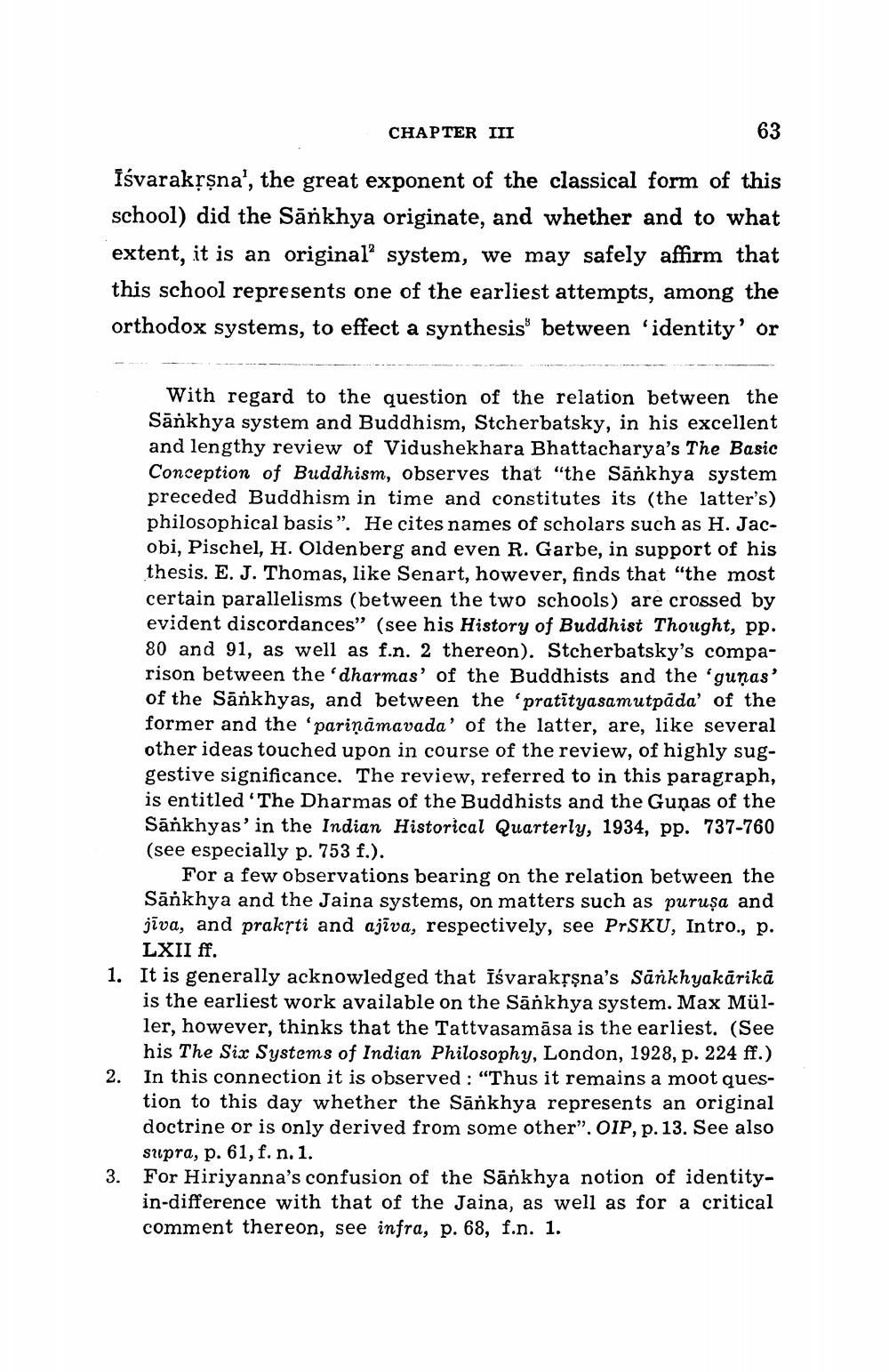________________
CHAPTER III
63
Iśvarakļşna', the great exponent of the classical form of this school) did the Sankhya originate, and whether and to what extent, it is an original' system, we may safely affirm that this school represents one of the earliest attempts, among the orthodox systems, to effect a synthesis between 'identity' or
With regard to the question of the relation between the Sankhya system and Buddhism, Stcherbatsky, in his excellent and lengthy review of Vidushekhara Bhattacharya's The Basic Conception of Buddhism, observes that "the Sankhya system preceded Buddhism in time and constitutes its (the latter's) philosophical basis". He cites names of scholars such as H. Jacobi, Pischel, H. Oldenberg and even R. Garbe, in support of his thesis. E. J. Thomas, like Senart, however, finds that "the most certain parallelisms (between the two schools) are crossed by evident discordances" (see his History of Buddhist Thought, pp. 80 and 91, as well as f.n. 2 thereon). Stcherbatsky's comparison between the 'dharmas' of the Buddhists and the 'guņas' of the Sankhyas, and between the 'pratītyasamutpada' of the former and the 'pariņāmavada' of the latter, are, like several other ideas touched upon in course of the review, of highly suggestive significance. The review, referred to in this paragraph, is entitled 'The Dharmas of the Buddhists and the Guņas of the Sankhyas' in the Indian Historical Quarterly, 1934, pp. 737-760 (see especially p. 753 f.).
For a few observations bearing on the relation between the Sankhya and the Jaina systems, on matters such as puruşa and jīva, and prakrti and ajīva, respectively, see PrSKU, Intro., p.
LXII ff. 1. It is generally acknowledged that iśvarakrsna's Sankhyakarikā
is the earliest work available on the Sānkhya system. Max Müller, however, thinks that the Tattvasamāsa is the earliest. (See his The Six Systems of Indian Philosophy, London, 1928, p. 224 ff.) In this connection it is observed : "Thus it remains a moot question to this day whether the Sankhya represents an original doctrine or is only derived from some other”. OIP, p. 13. See also supra, p. 61, f. n. 1. For Hiriyanna's confusion of the Sānkhya notion of identityin-difference with that of the Jaina, as well as for a critical comment thereon, see infra, p. 68, f.n. 1.




